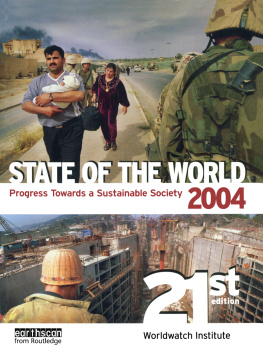First published 1999
This ebook edition 2013
Auckland University Press
University of Auckland
Private Bag 92019
Auckland
New Zealand
www.press.auckland.ac.nz
Brian Easton 1999
eISBN 978 1 86940 796 4
This book is copyright. Apart from fair dealing for the purpose of private study, research, criticism or review, as permitted under the Copyright Act, no part may be reproduced by any process without the prior permission of the publisher.
Cover design by Christine Hansen
The standard western advice, such as what i have called the Washington consensus, took what [Albert] Hirschman called an ideological, fundamental, and root-and-branch approach to reform-mongering as opposed to an incremental, remedial, piecemeal, and adaptive approach. I have no great quarrel with shock therapy as a measure to quickly reset expectations say in an anti-inflation program. The controversy was more about the attempted use of a shock therapy to install institutions where it might more aptly be called a blitzkrieg approach. Historically, the shock therapy or blitzkrieg approach to changing institutions is associated with Jacobinism in the French Revolution and (ironically) with Bolshevism in the Russian Revolution.
There is an Austrian tradition of criticism of the Jacobin-Bolshevik approach to institutional change. Karl Poppers criticism of utopian social engineering and Friedrich Hayeks critique of the Jacobinic ambitions of scientism gave this tradition its modern Austrian flavor but the roots go back at least to Edmund Burkes attack on Jacobinism in the French Revolution .... I have always had misgivings about the shock therapy component of the Washington consensus, at least as applied to institutional change.
The irony of it all is that the modern critique of utopian social engineering was based particularly on the Bolshevik approach to the transition from capitalism to communism, and the shock therapy approach tried to use many of the same principles for the reverse transition. It is almost as if many of the western advisors just thought the Bolsheviks had the wrong textbooks instead of the whole wrong approach. With the right textbooks in their briefcases, the market Bolsheviks would be able to fly into the post-socialist countries and use a peaceful version of Lenins methods to make the opposite transition.... This mentality is a reincarnation of the spirit and mindset of Bolshevism and Jacobinism.
Joseph Stiglitz (1999)
Preface and Acknowledgements
As time passes, much of a book about contemporary politics and policy becomes history. Students and readers want to know what has happened since. Much of The Commercialisation of New Zealand (CONZ) remains vitally relevant to today, even though the book was largely completed by mid-1996. But at the end of 1996, a new parliament was elected under the new regime of MMP, and the policy process began to change, with consequences for the policy outcomes. So for this book, The Whimpering of the State, I have chosen not to update CONZ but to write an entirely self-contained book except that, in order to avoid repetition, I have summarised some analysis and given cross-references to CONZ (as I have, where appropriate, to other relevant scholarly works). Thus this book is a stand-alone work, although I shall be delighted if reading it encourages the reader to go back to CONZ (and for some sections to have a look at In Stormy Seas).
The audience for a New Zealand book is always a problem given the small population, albeit with a high proportion of intense readers. As in the previous work I have tried to meet the needs of both university students (among whom my second-year political studies students loom large in my thinking) and the general reader of contemporary New Zealand studies. I also hope that the book will be of use to candidates for political office by providing a background to the policy environment in which they seek to participate. Public servants and others involved in policy will find useful insights in the book too. And like CONZ, this should also be a book of value to scholars.
The book begins with a chapter which describes how the policy process changes under an MMP parliament, whose structure means there has to be more consultation and response to the population than there was under the previous electoral regime. , that the new parliamentary structure is the cause of all the changing policy outcomes. Cross-cutting this is the fact that, as the reader of CONZ might expect, much of the commercialisers policy has failed in terms of its own objectives none more so than macroeconomic policy so there has been a policy revision going on here, independent of the new parliament. The two interact, and it would be tedious to try to disentangle their separate effects on the outcome. So I have included in the study some examples where outcome failure has been the dominant driver of policy change. In any case, even if the cause of the policy change was pre-MMP, the post-MMP environment determined the policy process.
, which contrasts the coalition agreement and the 1996 post-election briefings on health issues, illustrates just how large the chasm is between public and officials perceptions.
The second part of the book is a series of policy studies. Many of the chapters on health, education, and science follow from comparable chapters in CONZ. While I have written each as a standalone discussion, I have not repeated the analyses of CONZ where there has been little policy progress. The especially interested reader may need to go back to CONZ to get a more complete account of some policy areas. There is no new material on broadcasting all one can say is that with no new policy initiatives its quality has continued on its downward path. However the chapter on arts policy covers some similar analytical issues. There are only a few sections on the labour market this time, and instead of an appendix on environmental policy, the topic appears in various chapters. In their place, I have added three chapters on infrastructural issues water, roading, telecommunications, and electricity. There is no chapter on local government, but there are frequent references to its role throughout the book. While I may not be reflecting the conventional wisdom here, my view is that local government could have a more beneficial role in the future of New Zealand governance, yet we could miss that opportunity. As in the previous book, I have not much material on macroeconomic policy, industrial policy, macro-distributional policy, or Maori policy. I have worked on all of these, but to have included them would have over-extended the scope (and size) of the book.
I said in CONZ that I did not have a chapter on an alternative policy. This upset some of the reviewers, who did not notice that many chapters offered a policy framework with implicit policy recommendations. I remain uneasy with an approach which is more anxious to impose a set of policy prescriptions on the reader, than to get readers to think systematically and come to their own policy conclusions, based on their own preferences. I am anxious to avoid the far too common approach where someone presents themselves as an expert and uses that status to advocate, usually with little intellectual rigour, policies in their personal interests (or that of their employers). I have generally repeated the earlier strategy (reviewers please note), but I have finished with two policy conclusion chapters oriented towards future policy. One looks at constitutional and political developments, and the second looks at an alternative microeconomic policy framework to the commercialisation one. Each invites the reader to view some debates which are occurring in the policy community. They may come to nothing, but the reader has been advised of their existence. Because they are tentative debates, the policy views expressed in them are also tentative. They are mine, and yet I may change my mind. (As John Maynard Keynes is reputed to have said, I change my mind in the light of the evidence. What do you do?)












